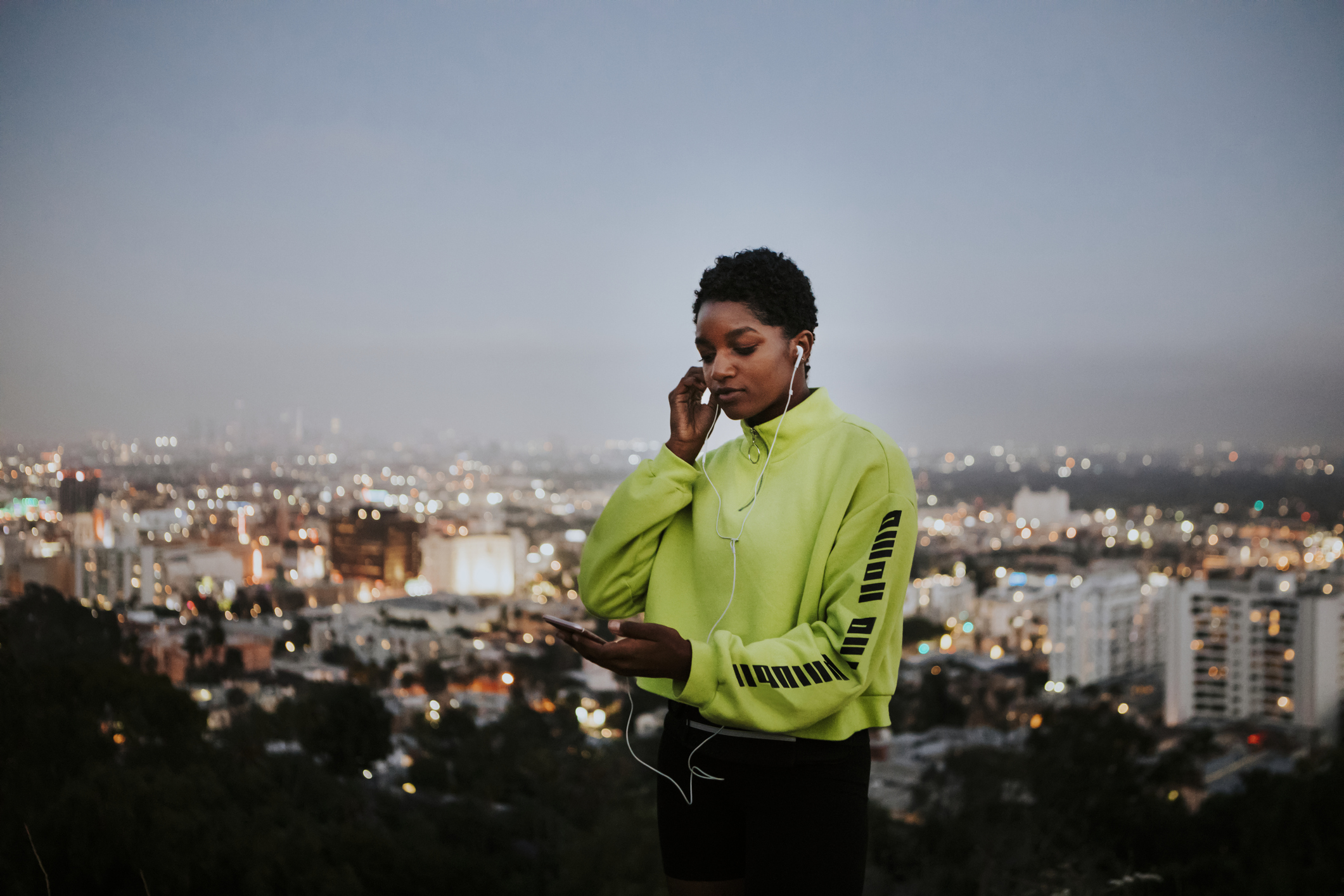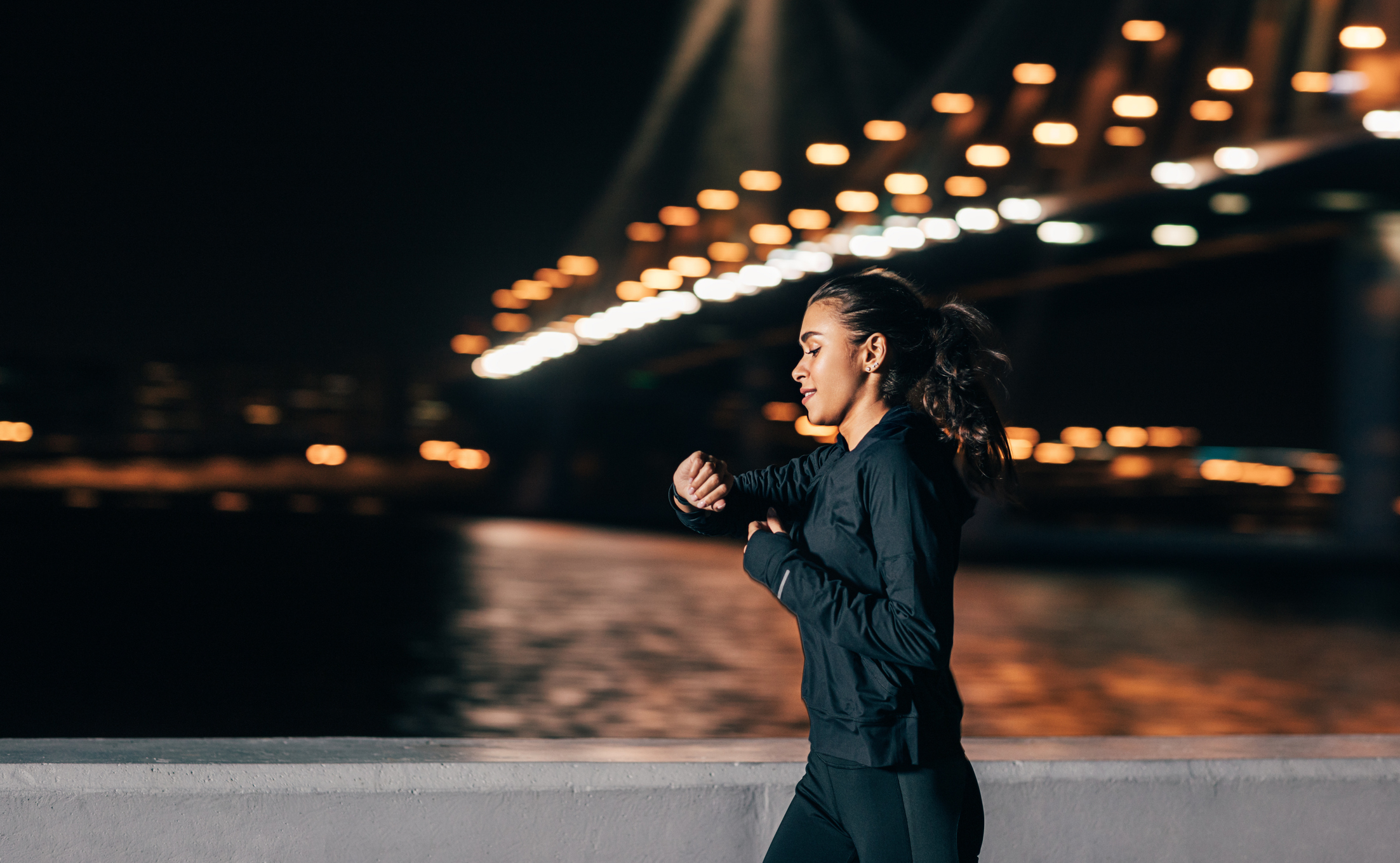Tempted to work out before bed? You should know this first
Want to work out before bed? Busy schedules often mean exercise routines get pushed back to the end of the day—but this is how your body might respond

Whether you like to slip out of bed for a run shortly after rising, prefer to factor a HIIT class into your lunch break, or are partial to a spot of weight training at the gym come evening, getting active at some point in the day is a positive thing for your body.
Research has found that doing 30 to 40 minutes of exercise every day does its bit to counteract hours of sitting. However, if you work out before bed, the science has been unclear on how it may impact your health in other ways.
Indeed, it has traditionally been thought that those who tend towards evening training sessions—often finding that work, fun, and other commitments make it the easiest time to squeeze in fitness—may risk sabotaging their ability to nod off.
So, before you pick up those weights (need to buy some? Check out these best dumbbells for women) or hop on the treadmill at 9pm, you'd be wise to consider whether your late-night sweat session could come with an unexpected post-cool-down side effect. Read on to find out how to exercise at night in a way that doesn’t compromise that rejuvenating (read: glowy skin!) snooze...
- What’s the perfect workout schedule? What to do each week to stay in shape
- 15-minute morning rituals to kick off your day right
- Why do I have anxiety at night? Here's how it's getting in the way of your sleep
Work out before bed: here's the deal
Insomnia calling?
Common sense would dictate that doing an intense workout shortly before slipping between the sheets hoping to be lulled into a restful snooze isn't exactly the best of ideas.
Indeed, past research has decreed that aerobic exercise—like running, swimming or cycling—could impact sleep quality. It has traditionally been thought that workouts, which raise core body temperature, heart rate, and arousal, are not conducive to lowering body temperature as well as slowing heart rate and slower brain waves needed for people to nod off.
However, a mounting body of evidence has actually challenged this notion, with research showing that late-night exercise doesn’t make a jot of difference to achieving quality shut-eye. One study—that saw researchers measure the core body temperature and sleep quality of participants after moderate-intensity exercise—found that it didn't affect their zzz's.
But, it’s personal...
That said, not all bodies are the same—and some people are simply better wired for morning workouts, while others are more suited to exercising in the evening.
“Your chronotype is the influence of your genetics on your sleep/wake time—hence why we class people as morning types (larks), daytime types and evening types (owls),” says Dr. Guy Meadows, co-founder and clinical lead at Sleep School. “Research shows, when it comes to picking the best time of day for training, it is also influenced by your chronotype." In this vein, a study found that evening exercise could affect sleep quality if you’re a lark—or early bird—but not if you’re a night owl.
Dr. Meadows reveals that morning types are physiologically strongest at midday, daytime types around 4pm to 6pm and evening types around 7pm to 8pm. He notes that problems often come because of modern lives, explaining: “Unfortunately many of us are restricted on when we can exercise—having to exercise before or after work, which can potentially negatively impact both our training and our sleep.”

Rest-less?
Let’s not forget that, in turn, sleep is vital for smashing those fitness PBs. “If working out in the evening starts affecting your sleep, your recovery is going to be hindered and your performance could be negatively impacted,” says Josh Davies, personal trainer at Aimee Victoria Long.
Indeed, researchers believe that clocking those quality eight hours works to supercharge your training because it is during sleep that the growth hormone is released—which stimulates muscle growth and repair, as well as driving fat burning.
However, it's also important to take into account that there is widespread evidence that working out—even in the evening—can actually aid your sleep. Indeed, one study found that, as long as you avoid vigorous exercise within the hour before bed, a night-time training session helps you nod off faster and spend more time in deep zzzz.
Not sure how well you're snoozing? Try one of these best sleep trackers!
So, what is the best time to exercise?
In short, the best time to exercise is completely up to you. Though Lucy Arnold, a personal trainer and the founder of activewear brand Lucy Locket Loves, has a good reason for leaning towards later sessions.
"Research shows that our bodies peak at eleven hours after waking up, allowing us to have a more intense workout—which will, subsequently, help us in the pursuit of our fitness goals, like toning up,” she says. This means that, if you wake up at 7am, a 6pm training session could be your sweet spot.
However, there are a couple of things you should take into consideration if you do want to train in the evenings. “As a rule of thumb, leave at least two hours between exercising and sleeping,” recommends Dr. Meadows. “If you do exercise late, then make sure to have a good wind-down routine, including a warm shower or bath to help you physically relax, as well as cool your body down for sleep.”
If you're still struggling to nod off, it could be that you need to tweak the type of exercise you do, opting for less intense movement. One study found that yoga can help boost sleep quality. And for those suffering from insomnia, research advises leaving at least four hours between exercising and heading to bed.
Dr. Meadows adds: “But exercise at a time of day that feels best for you—listen to your body and work out when you have the most energy, feel at your strongest, most flexible.”
Lauren is a freelance writer and editor with more than six years of digital and magazine experience. Most recently, she has been the Acting Commissioning Editor of Women's Health—where she co-produced the Going For Goal podcast—and has previously also written news and features for titles including The Telegraph, Grazia, Stylist, Dazed, The Sun's Fabulous, Yahoo Style UK and Get The Gloss. She covers all aspects of lifestyle, specializing in health, beauty, and travel. Can't live without: oat milk lattes, new podcast episodes, long walks, and great skincare.